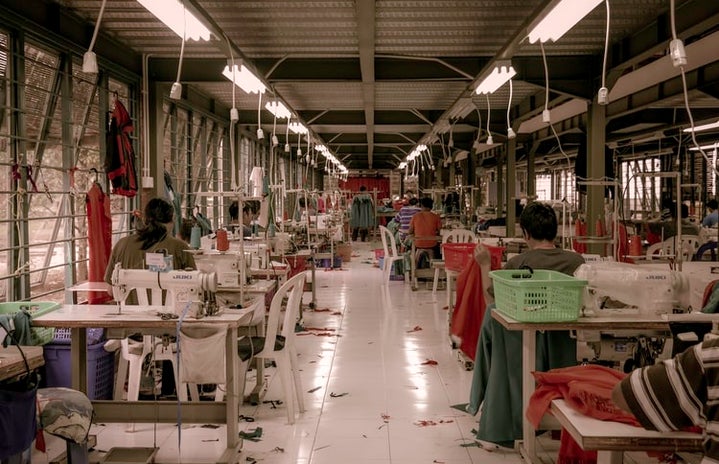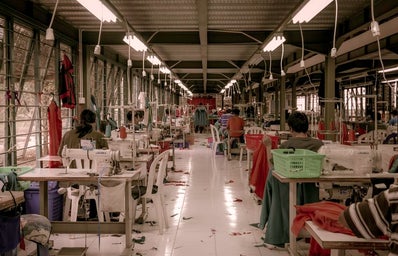In light of Molly-Mae Hague’s recent blunder on social media, I can’t help but wonder if it’s time to focus on the true issue at hand.
Following her appearance on the Youtube series, The Diary of a CEO, a clip taken from this interview went viral this month as Molly-Mae came under fire for comments that many Twitter users branded insensitive and tone-deaf. While claiming that she has ‘worked my a**se off to get where I am now’, Molly-Mae argued that despite some criticism she has received in the past, she is correct in stating that ‘everyone has the same 24 hours in a day’.
The influencer shot to fame in 2019 when she came second with her boyfriend, Tommy Fury, on the insanely popular dating show Love Island. For six weeks Molly-Mae lived her best life, flirting, taking part in challenges and sunning herself on the gorgeous island of Majorca. Following her appearance on the show, just like many ex-Islanders before her, she was offered numerous lucrative brand deals which have made her one of the highest earning Love Islanders. Many were enraged about Molly-Mae’s comments as she was wealthy before her stint on the dating show, a successful influencer who was already earning £1000 for social media endorsements.
As someone who has clearly not grown up in poverty, worrying about the next bill or meal, Molly-Mae is privileged enough to dedicate her entire 24 hours of the day to making millions through brand deals and collaborations. She very likely has not had to work a twelve hour shift in a minimum wage job just to make ends meet. Her claims that ‘the things I’ve done now are not because of Love Island’ but rather ‘because of me and what I decided to do with my work ethic’ don’t take into consideration the immense amount of privilege she has and her obvious ignorance of the wealth inequality that impacts millions of families in the UK.
Recent years have shown that people love to attack and demonise celebrities who have shared a controversial opinion; cancel culture is thriving more than ever. Although seeing a celebrity fall from grace may evoke a morbid sense of enjoyment, perhaps we should be paying more attention to those who are exploited in order for public figures to achieve such success. We should instead be focusing on the PLT garment workers who are being exploited daily to create Molly-Mae’s new lines of over-priced, yet poor quality clothes.
Thankfully there has been a recent surge of interest in sustainable shopping, with the popularity of ethical brands and sites like Depop on the rise. However, Pretty Little Thing continues to succeed, funding the lavish lifestyle of both its creative director Molly-Mae and its founder, Umar Kamani. While those at the top of the PLT food chain thrive, promoting a ‘self-made hustler’ image, those that work tirelessly behind the scenes to mass-produce clothing lines suffer in silence. Molly-Mae’s recent comments only reinforce her ignorance and seeming lack of concern for these people.
An investigation, conducted by the Sunday Times, found that Boohoo and PLT were paying their factory garment workers just £3.50 an hour to work in unsafe conditions. The average creative director salary in London is around £100,000 however, Molly-Mae is rumoured to be making much more than this figure, due to her stature and to the financial success of Pretty Little Thing. While Molly-Mae potentially earns a seven figure salary, garment workers are earning as little as £8,000 a year. Labour Behind the Label, a charity for workers’ rights, also found that factories manufacturing clothes for companies under the Boohoo umbrella (PLT is owned by Boohoo) remained open all the way through the pandemic. Many were forced to come in even if they were displaying symptoms of COVID 19, indicating the utter lack of concern for human life and safety.
So even though Molly-Mae’s comments may seem like the obtuse but harmless words of an influencer, we should consider for a moment that there are serious issues lurking underneath the surface of her glamourous life. Perhaps the lesson to take from Molly-Mae’s scandal is that celebrities are not to be blindly trusted, that each individual should do their own research to find out the truth behind the gimmicks and trends pushed by fast fashion brands like Pretty Little Thing. While it may give us a sense of justice to cancel Molly-Mae for her insensitive words, perhaps the better option would be instead to cancel the companies forcing people to work in inhumane conditions for pitiful salaries. The next time you want to buy a new item of clothing, maybe consider a site like Vinted, Depop or Ebay for second hand clothes or Tala for sportswear, Nobody’s Child is also great for supporting its garment workers and using sustainable fabrics.
Rather than spouting hate at an ignorant individual, boycotting Pretty Little Thing and supporting ethical brands is the best way to show our collective frustration and incite change.


